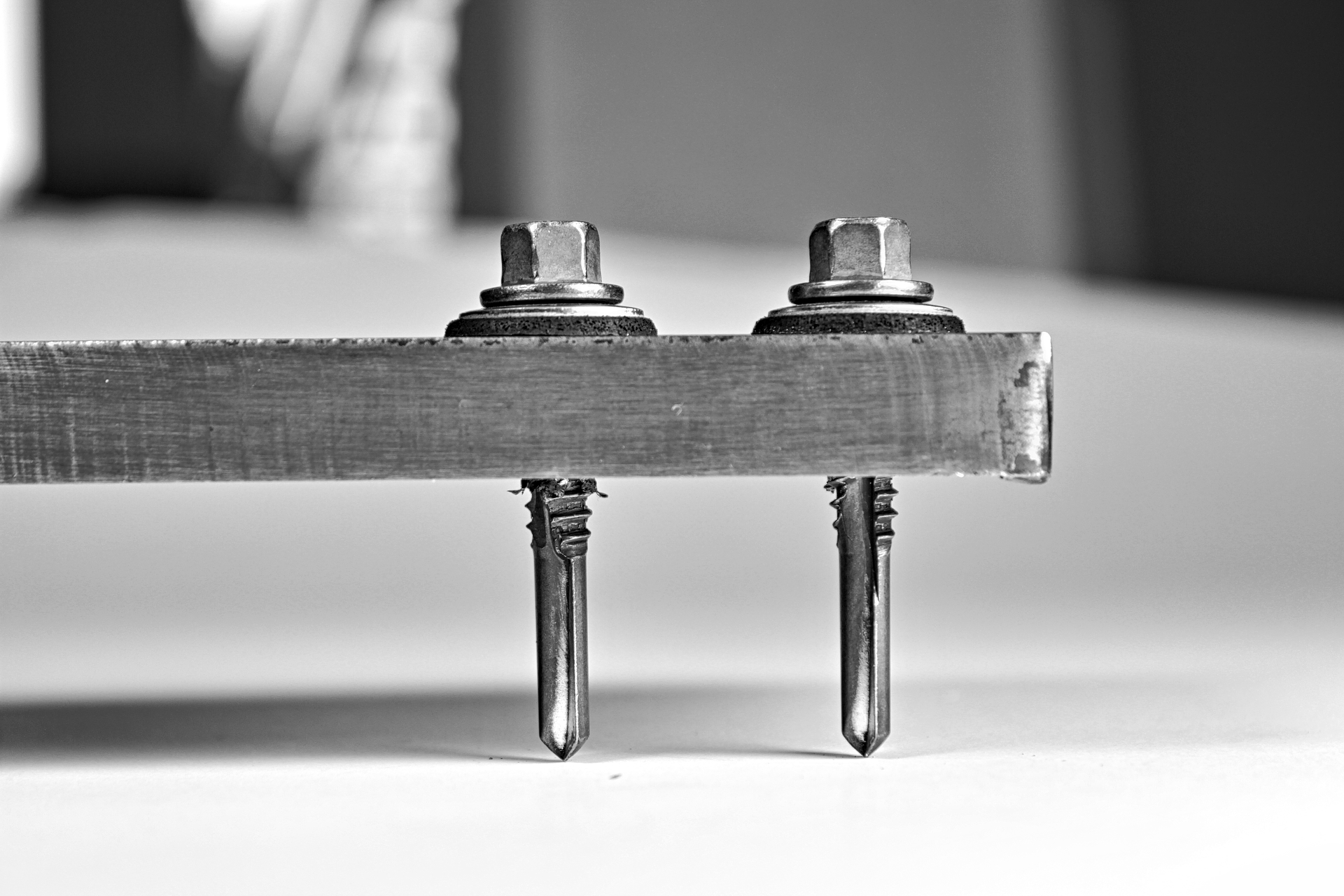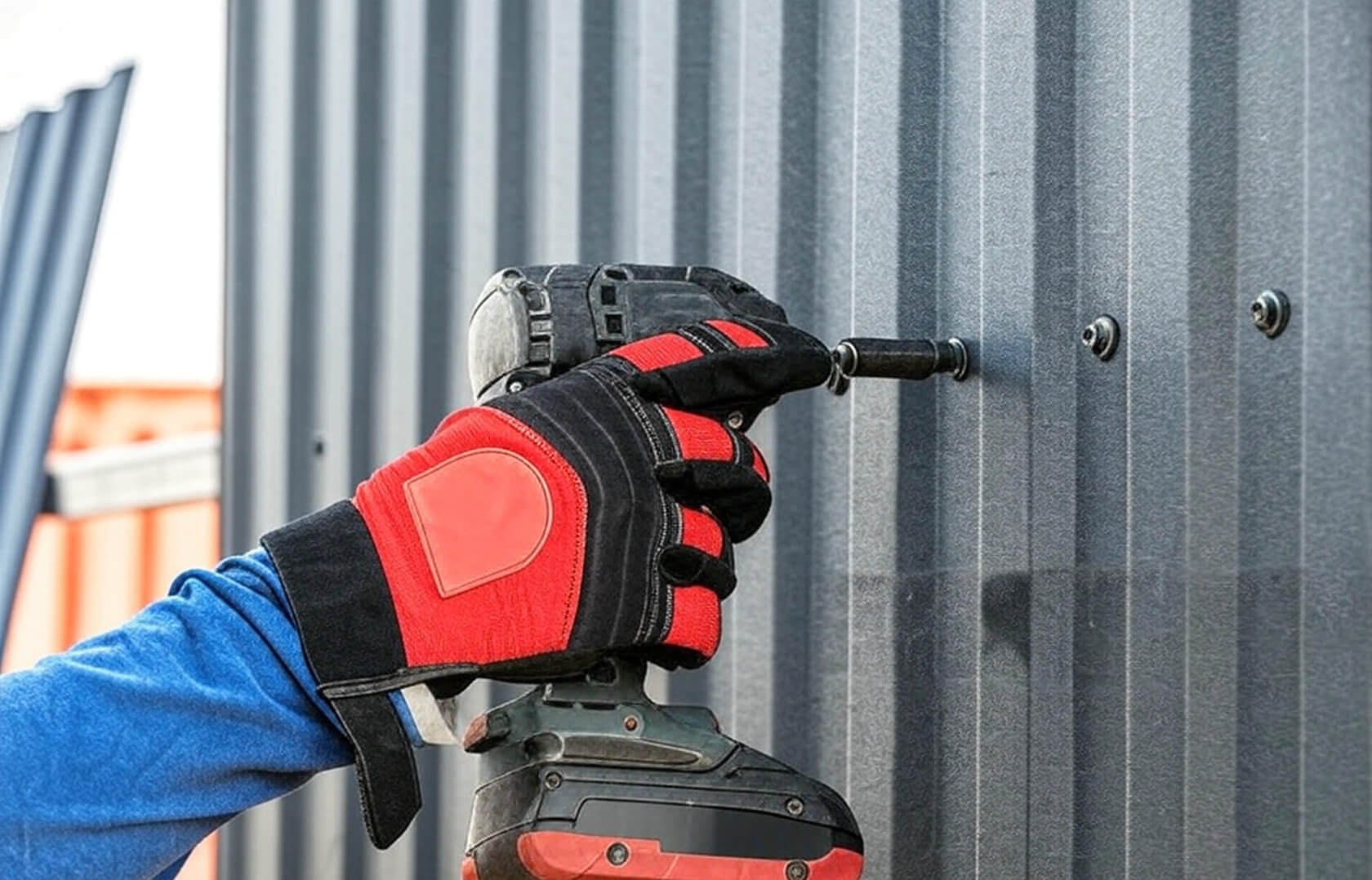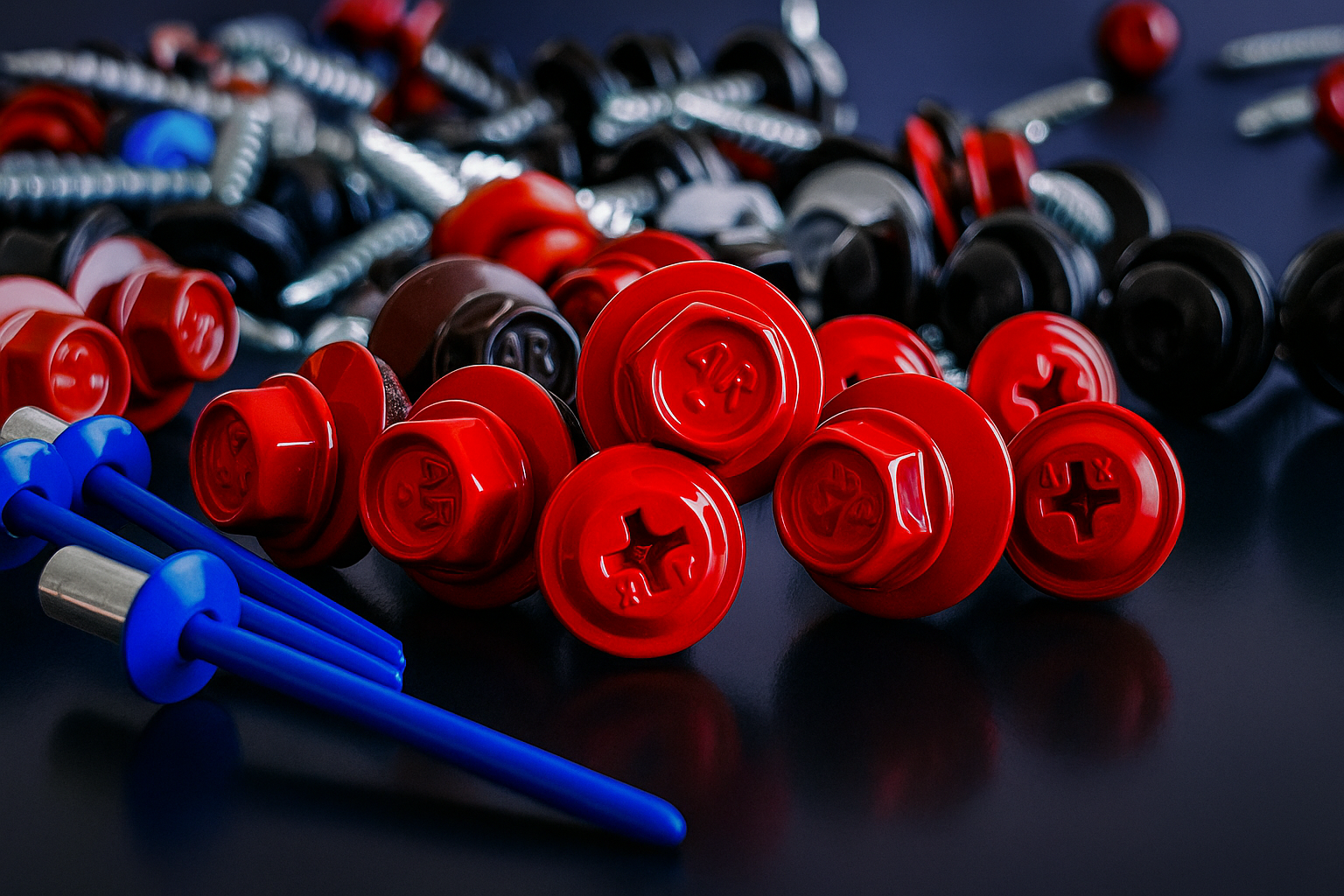Why Are Coatings Important?
Discover the Protection Systems Used by Info-GLOBAL Fastening®
In the world of professional fastening systems, durability, safety, and resistance to environmental conditions are essential. That’s why at Info-GLOBAL Fastening®, we place a strong emphasis on the quality of protective coatings that shield our fasteners from corrosion, wear, and weather exposure.
Why Are Protective Coatings So Important?
A coating is more than just a surface layer — it’s a critical protective barrier that:
-
Shields fasteners from corrosion and moisture,
-
Increases mechanical resistance,
-
Enhances aesthetic appearance,
-
Extends the lifetime of the product,
-
Ensures safe and reliable fastening in all environments.
Thanks to properly selected coating systems, our screws can be confidently used in roofing, facade installations, and industrial applications, including high-humidity or aggressive environments.
Protective coatings used by Info-GLOBAL Fastening®
Our product range includes fasteners coated with proven and effective corrosion protection systems, such as:
Zinc Coating – 12μm and 24μm
-
Standard protection for steel components
-
Provides basic resistance against moisture and corrosion
-
An economical and durable solution for general construction use
EsC™ Coating (Ecological Suppressor of Corrosion)
-
Excellent corrosion resistance, even in aggressive conditions
-
Used for steel and aluminum sheet screws
-
Perfect for outdoor applications and steel structures
Eco-GrePert™ Coating
-
Natural rust resistance without additional finishing
-
Recommended for humid, industrial, or coastal environments
-
Offers the highest durability and chemical resistance
Powder-Coated Finish (RAL colors)
-
Heat-hardened powder paint coating
-
Aesthetic integration with roofing or facades
-
Additional protection against UV radiation and corrosion
At Info-GLOBAL Fastening®, we never compromise on quality. By applying professional protective coatings, we ensure that our fastening elements deliver long-term performance and reliability — no matter the environment.





